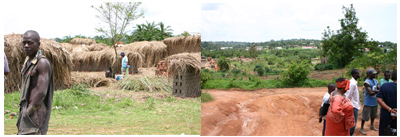
Kampala City Council has committed 16.5 acres, around 6 Ha, of land for construction of a new low-income and sustainable urban settlement integrating urban agriculture in its design and development. The project will be implemented in Kyanja Parish, Nakawa Division, North-East of Kampala City, Uganda.
The selected site is in the north of the City, and is not covered by the satellite imagery available for the rest of the urban area. It was acquired by City Council for a solid waste landfill site, but protest by local residents led to the abandonment of this idea. The site includes a low-lying wetland area (valley) where a youth cooperative practices brick-makings, providing work for otherwise unemployed youth (what make the team feel that it would be counter-productive to close this income generating operation, taking also into consideration the bricks are said to be of good quality), and a sloping dryland area where farming is practice (mainly by women: vegetables, cassava, firewood). No constructions (houses, sheds) are found on the site. The area is owned by the City Council and no user-rights agreements are in currently place with either the cooperative or the peri-urban farmers.
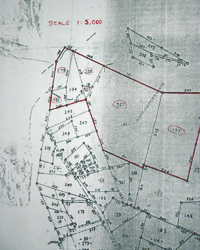
The first problem to be tackled is "Who are the clients for this site?" The City team is investigating this as its number one priority. Is it the surrounding population? The brickworkers? The cultivators? Other needy people? The homeless? Who decides? How? In previous projects, KCC has had the experience of developing sites for low-income groups, and seeing them taken over by higher income people, and does not want this to happen again. The City team is looking into this matter, since no participatory design can be undertaken without clients.
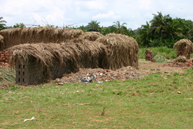
The second is "What type of land-tenure and/or management structure will maximaze the potential of the site, ensure that this demostration projet will serve the interests of the poor, and be socially and culturallly acceptable?" Once the client group has been identified, the City team will consult with the group to determine the possibilies. McGill planning students are working on this range of possibilities.
Views of the selected site
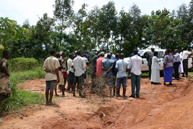 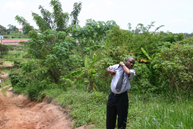 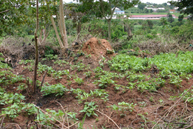 | 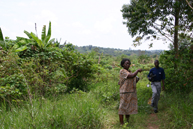 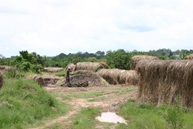 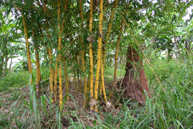 |